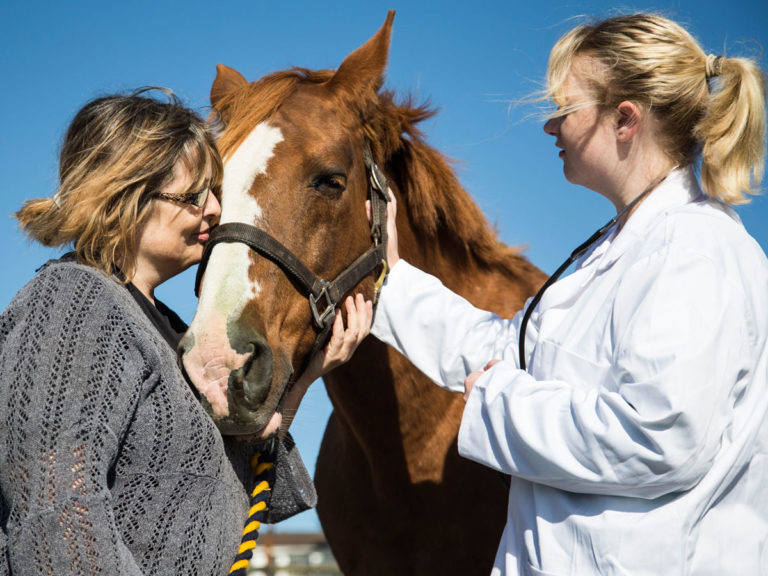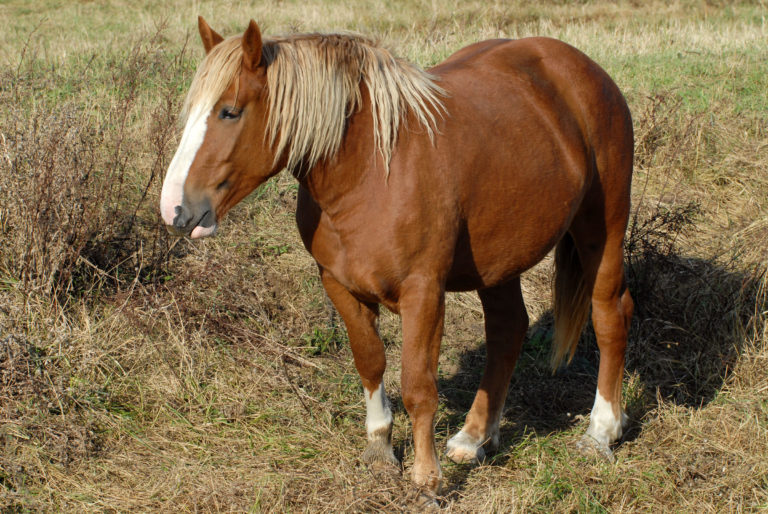
Dechra Veterinary Products prides itself as a global leader in the ethical and responsible use of pharmaceuticals. The health of the horse is our first and foremost priority, and a driving force in our product development, commercialization and ongoing research efforts. We are passionate advocates of equine welfare and our people, science and products deliver on that passion every day.
When a part of our industry suffers, we all suffer, and the unfortunate circumstances at Santa Anita are no exception. The unscrupulous use of any health product is something we find not only morally reprehensible but also incredibly disheartening. Speculation around the potential causes of these incidents at Santa Anita is leading to confusion and creating uncertainty as to the use of bisphosphonates in horses. Dechra would like to offer clarification specific to its product, OSPHOS® (clodronate injection).
“Dechra firmly believes OSPHOS is safe to use in horses when label directions are followed,” says Jill Stohs, DVM, director of pharmacovigilance and veterinary services for Dechra Veterinary Products. “Dechra does not market, promote or condone the sale of OSPHOS for off-label use and has always advocated for the judicious use of our product. We have undertaken significant educational efforts since the product launched to inform the profession on the indicated safe use of the product and have a very high compliance rate with on-label use of the product, particularly in English sport and western performance horses.”
OSPHOS gained approval in April 2014 by the U.S. Food and Drug Administration (FDA) Center for Veterinary Medicine (CVM) as a non-nitrogenous bisphosphonate drug indicated for control of clinical signs associated with navicular syndrome in horses 4 years of age and older. OSPHOS has gained wide acceptance in equine veterinary medicine to address navicular syndrome in an effective and non-invasive manner.
Dechra firmly stands behind the product when used according to label instructions and is proud to provide the equine veterinary profession with a scientifically-founded treatment to address navicular syndrome in horses, which is one of the most common lameness issues in the adult horse.1,2,3
Recently, information has been circulating which requires scientific clarification.
1) OSPHOS has been approved for horses 4 years of age and older because navicular syndrome—the condition for which it is FDA approved—often manifests itself at this age or older. Dechra has not studied efficacy and safety of OSPHOS outside of this approved indication and age category.
2) The use of OSPHOS for the purpose of augmenting radiographic films is not substantiated by science. Our clinical efficacy study data did not demonstrate positive effect of OSPHOS on the radiographic appearance of bones. Our safety data showed no evidence of an effect of clodronate on structural strength and mineral density of the metacarpus when dosed at 3X label dose every 28 days for 6 months.4
3) The pain-relieving effect of bisphosphonates has not been studied in the horse. Bisphosphonates as a drug class have been shown to produce temporary relief of pain in humans, however the exact immunomodulatory effect is unknown in the horse. Dechra does not recommend OSPHOS be administered for the sole purpose of short-term relief of pain.
4) OSPHOS is the only FDA-approved clodronate indicated for control of clinical signs of navicular syndrome in horses and is available exclusively through licensed veterinarians.5
5) There are two generations of bisphosphonates, non-nitrogenous (non-nitrogen containing) or nitrogenous (nitrogen-containing). OSPHOS is a first-generation non-nitrogenous bisphosphonate. This is the least potent class of bisphosphonate. There has been evidence of the non-approved and FEI-banned nitrogenous bisphosphonate zoledronate being compounded and used in horses. The nitrogenous bisphosphonates are not approved for use in the horse and work on a more complex pathway with a myriad of side effects as seen and documented in human medicine literature.
- Adam’s and Stashak’s lameness in horses-6th ed./ [edited by] Gary M. Baxter. Wiley-Blackwell, West Sussex, UK 2011; pp 475-593.
- Colles, C.M. Navicular Disease and Its Treatment. In Practice 1982; 4:29-36.
- Dyson, S.J. Navicular disease and other soft tissue causes of palmar foot pain. In Diagnosis and Management of Lameness in the Horse. Ross, M.W., Dyson, S.J., eds. Saunders, St. Louis, MO 2003; 286-298.
- OSPHOS (clodronate injection) Freedom of Information (FOI) Summary 2014. https://animaldrusatfda.fda.gov/adafda/app/search/public/document/
downloadFoi/923 - FDA Provides Equine Veterinarians with Important Information about TILDREN and OSPHOS for Navicular Syndrome in Horses. https://www.fda.gov/animalveterinary/resourcesforyou/
ucm406581.htm (accessed 4/2/19)
About Dechra Veterinary Products
Dechra Veterinary Products, located in Overland Park, Kansas, is the U.S. sales and marketing division of Dechra Pharmaceuticals PLC, a UK listed company dedicated to the animal healthcare market. Dechra’s equine product line includes OSPHOS® (clodronate injection), Orthokine® vet irap 10 and 60, Osteokine® (PRP), Equidone® (domperidone) Gel, PHYCOX® Max EQ Granules Joint Supplement and VETIVEX® Hartmann’s Solution. Dechra Veterinary Products’ companion animal portfolio focuses on endocrinology, dermatology, ophthalmology, anesthesia, fluid therapy, pain management and joint health support. For more information, please visit www.dechra-us.com or call (866) 933-2472.








